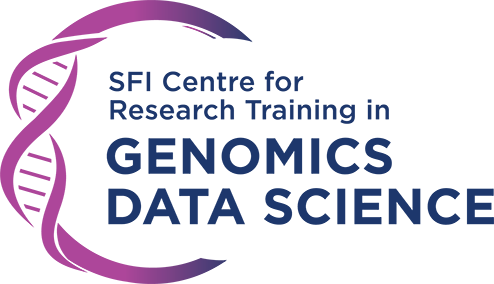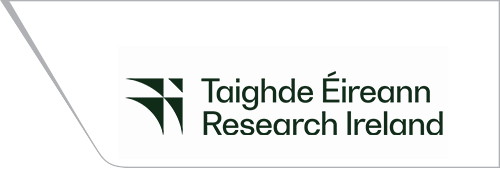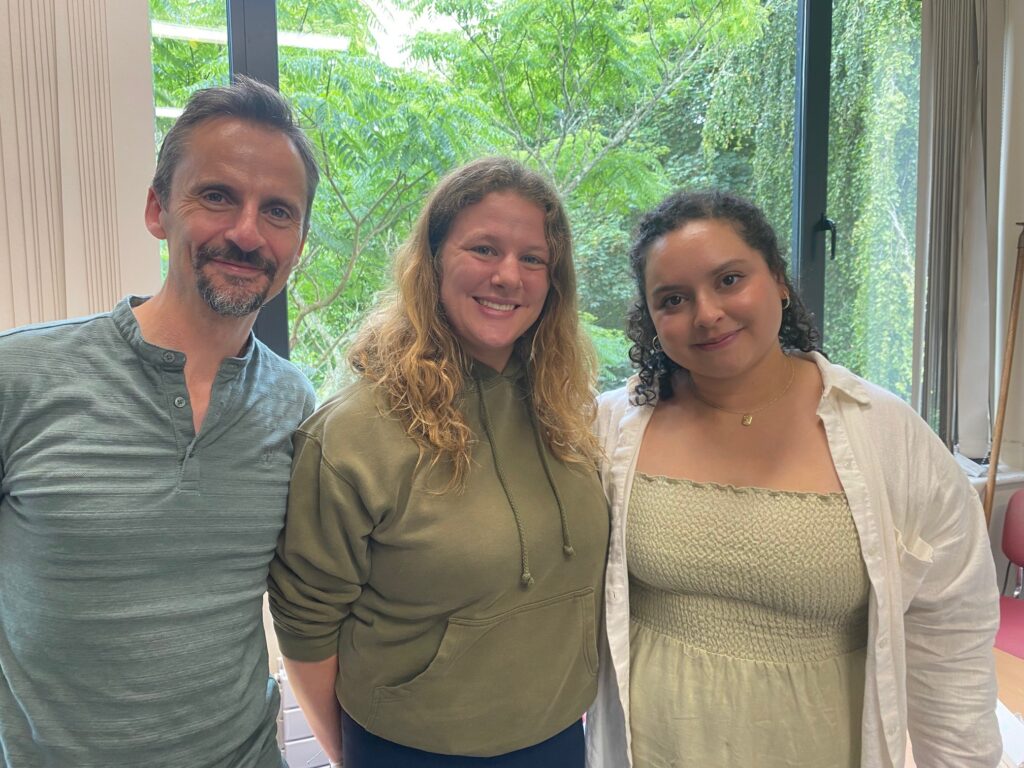The CRT was delighted to welcome 2 visiting PhD students to the University of Galway for summer research projects as part of the NSF-SFI mobility programme.
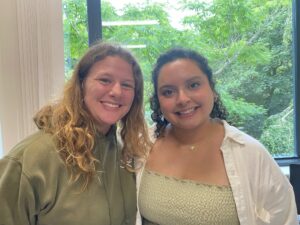
Gianna Gathman is a PhD student in the Data Driven Biology National Traineeship programme at the University of California Santa Barbara and is following in the footsteps of 3 students in the same programme who came to the University of Galway last year to do summer projects with CRT supervisors. While in Galway Gianna was hosted by Dr Kasia Whysall who is an expert in musculoskeletal tissues and epigenetics. Her research interests include the role of microRNA, as therapeutics and biomarkers, in musculoskeletal ageing and disease. Gianna’s project looked at determining the role of selected microRNAs in cell migration.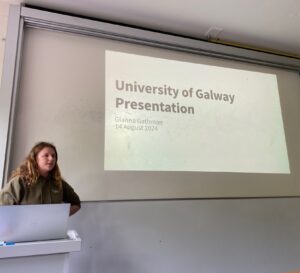
Irma Vlasac is a PhD student in the Transformative Research and Graduate Education in Sensor Science, Technology and Innovation NRT at Dartmouth College led by Eric Fossum, through the Dartmouth Engineering Innovation Phd Program (https://engineering.dartmouth.edu/graduate/phdi). Irma was hosted by Prof Cathal Seoighe, at the University of Galway for a summer placement. Prof Seoighe’s research involves the development and application of computational methods for the analysis of genome-scale biological data. Irma applied the methods developed in the host group to DNA methylation and gene expression datasets from her research project.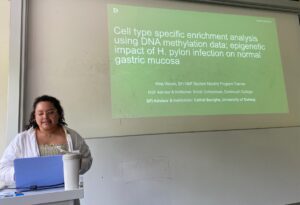
It was fantastic to have these 2 students on placement and see them build new interactions and networks with our CRT students. The SFI-NSF Student Mobility Programme is designed to enable Irish and US PhD students to collaborate on research projects in academic laboratories in the Unites States of America and Ireland and specifically links PhD students from the SFI funded Centres for Research Training (CRT) with academic laboratories at the National Science Foundation (NSF) Research Traineeship Program (NRT). It is an excellent programme aimed at supporting postgraduate students in the development of professional networks and widening their career exposure and well as fostering interactions between US and Irish researchers.
